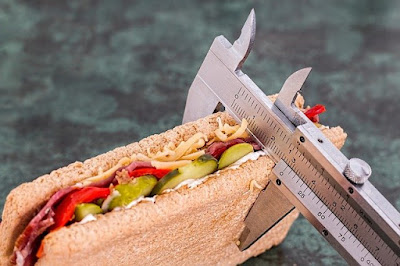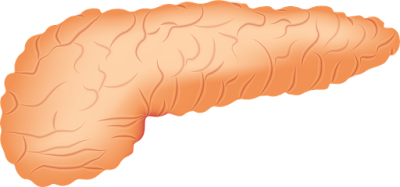Impossible to lose weight - what weight loss errors?
I can't lose weight, i.e. errors in weight loss
Dozens of hours at the gym, numerous nutritional sacrifices and other activities aimed at reducing body weight, and weight or vibration.... It is easy to lose hope of getting the figure of your dreams. Many people, however, do not realize that the lack of effects is the result of mistakes made during weight loss.
What am I doing wrong when I lose weight?
Losing weight is a very complex process. Its results are influenced by many factors, which are often related to the individual conditions of the body. Many people also do not have adequate knowledge of weight loss, which can often make it difficult for them to understand the reactions of their own bodies.
There are a few very popular errors that affect the results obtained during weight loss.
Quite a serious error is counting the calories consumed. They are very important, because the calorie deficit is a simple way to lose weight. However, the problem is that few people are able to correctly estimate their calorific needs. And even small misrepresentations of 200 kcal will have a huge impact on the weight loss process.
Another important error is to focus only on physical activity. Spending hundreds of hours at the gym without modifying the diet may not only not bring results, but even harm. During exercise, our body gets rid of valuable minerals with sweat; so if our diet does not cover the increased demand for them, there may be a risk of a slowdown in metabolism, a decrease in immune system and increased accumulation of fat tissue on the abdomen.
Bad eating habits remain the same, and it is on them, and not on exercise that weight is mainly dependent. It is therefore worth supplementing the diet with slimming tablets, which contain ingredients aimed at weight reduction.
It is also worth paying attention to the stress occurring during weight loss. It is a mistake to ignore its symptoms, such as nervousness or sleep disorders caused by poor diet or excessive physical effort.
Cortisol, or stress hormone, causes the accumulation of adipose tissue, so the whole effort goes to waste. If you decide to lose weight, you should provide yourself with an appropriate dose of sleep, listen to the body and also use forms of relaxation activities, which will have a positive impact on our mood while reducing the level of stress.
What diet during weight loss?
There are a few things that absolutely must be excluded from the diet, even if you are not yet obese. Sweetened carbonated drinks and fast foods are such products. They consist mainly of empty calories that are fatal to body weight.
What you should eat first of all is fruit and vegetables. Red meat should be removed from the meat products of the daily diet, and chicken and sea fish meat should be added in their place.
The general principle of a good diet is to minimise the consumption of sugars and fats. Of course, we need them for life and they cannot be completely abandoned, but when consumed in healthy products, they will be fully sufficient.
Avoiding these mistakes on a daily basis will allow us to accelerate the effects of weight loss without having a negative impact on our health.
Diet in weight loss - nutrition basics
The saying, 'you are what you eat' has never been more true than in bodybuilding. Train hard and use a proper diet and you will be on the fast track to powerful muscles; forego vital nutrients and eat poorly and your muscles will have literally nothing from which to draw to recover and from which 'fuel' for training would be supplied. Training is only half of bodybuilding.
You need to supply your body with the right amount of calories - and the right ones at that - so that your muscle tissues can regenerate and so that they can get energy from somewhere. If you want the size of your muscles to increase significantly, you will need enough high-quality food so that there is something to replace the calories burned during training plus additional calories to support growth.
On the other hand, if you are trying to lose weight (while developing muscle), limit your daily calorie intake to around 300. Combined with physical activity, this is the equivalent of losing 0.5 kilograms per week, which is a healthy portion according to most dietary rules.
Consider the three basic types of dietary nutrients: protein (proteins), carbohydrates and fats.
Protein. What is needed for muscle recovery and growth. It consists of 22 amino acids (the actual building blocks of cells), some of which are more important than others. Acutely training bodybuilders take in about 2g of protein for every kilogram of body weight per day. Good sources: fish, skinless chicken and turkey, egg white, lean red meat, fat-free dairy products.
Carbohydrates. The main source of energy (although fats are the richest in it). Divided into simple sugars (easily digested, cause an increase in blood sugar, which affects moods and can lead to increased fat storage) and complex sugars (somewhat slower to be released into the bloodstream for a gradual release of energy and less fluctuation in blood sugar levels). For the average bodybuilder, carbohydrates should account for around 60% of calorie intake. Good sources: fruit and vegetables, cereals, grains and bread, rice and pasta.
Fats. The most concentrated form of energy (more than twice the number of calories per gram compared to carbohydrates and protein). Eliminating all fats from your diet, although virtually impossible, would not be a very good idea (if only because vitamins A, D, E, K are soluble in your fat tissue). Fats of plant origin are generally healthier than animal fats and should make up no more than 20-30% of your daily calorie intake.
Simple nutrition tips
Eat 4-6 smaller meals a day, rich in nutrients, instead of three larger meals.
Choose foods from a variety of food groups, paying particular attention to those that are fresh.
When you fill your plate, aim to provide about two-thirds of your calorie intake from carbohydrates and about one-third from protein. Don't worry, the fats will take care of themselves.
Divide the amount of protein you need on any given day by the number of meals you eat, and make sure you consume at least that amount at each meal.
Complex carbohydrates (cereals, pasta) are a better source of sustained energy than simple sugars. In fact, limit your intake of simple carbohydrates (sugars).
Watch the amount of fat you consume, especially saturated fats (mainly animal fats).
When it is difficult to eat a normal meal, use supplements. A tasty protein meal can turn a simple orange juice into a protein-rich shake.
Keep healthy snacks on hand in and out of the home (e.g. at lunchtime).
Limit your intake of alcoholic drinks. They contain 7 calories per gram and have no nutritional value.
Make sure you eat a meal rich in complex carbohydrates at least two hours before your workout.
Eat a high-protein carbohydrate-rich snack immediately after your workout (liquid is particularly suitable) and then again within two hours.
This will help replenish the glycogen stores in your muscles ('fuel') and provide the amino acids necessary for recovery and growth.
Beware of fast food. Very few bars and fast-food restaurants have healthy food on offer.
Don't forget water, especially in summer. Even slight dehydration will negatively affect your workouts. Always drink more than you think you need; try to drink eight large glasses of water a day.



Comments
Post a Comment